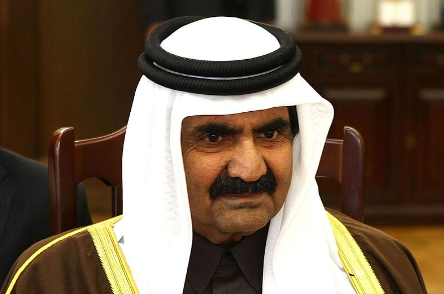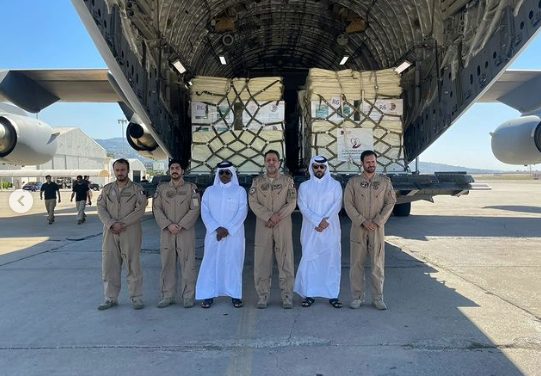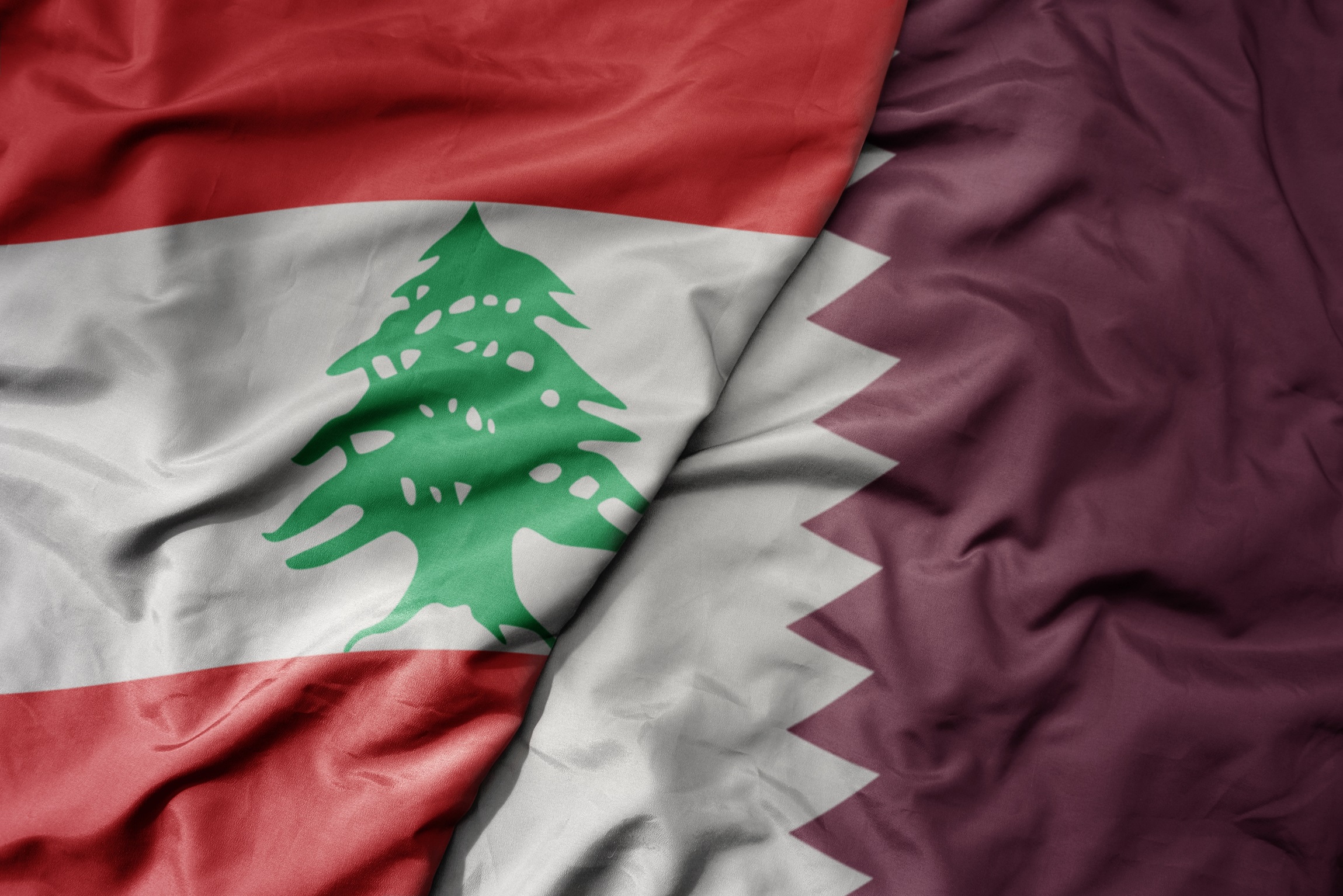Publications
INSS Insight No. 1905, November 5, 2024
Against the backdrop of the war between Israel and Hezbollah, Qatar appears to be taking steps to expand its influence in Lebanon. Israel’s wariness toward Qatar stems from Doha’s adversarial policy toward Israel and with its ties to Hamas. Nevertheless, Israel and Qatar’s interests may converge regarding Lebanon, particularly in preventing the country from completely falling into the hands of Iran and Hezbollah. In this context, coordination between Israel and the United States, which has close ties with Qatar, is necessary.
During the war between Israel and Hezbollah, Qatar’s efforts to leverage the situation in Lebanon became evident. Even before Israel’s ground incursion into Lebanon on October 1, it was reported that the United States had asked Qatar to help facilitate a ceasefire agreement between Israel and Hezbollah. Qatar’s growing involvement is also possible because most Arab countries, especially the wealthy Gulf states, have been reluctant to engage in Lebanon, mainly due to the increasing influence of Iran-backed Hezbollah and the perception of Lebanon as a “bottomless pit” in need of endless aid. Qatar, however, views this lack of regional involvement as an opportunity to increase its influence, utilizing its good relations with both Iran and the United States.
Qatar’s Unique Foreign Policy
Over the past two decades, Qatar has pursued a foreign policy of strategic hedging. Its vast wealth and ties with the United States have allowed Qatar to operate freely on the international stage without the constraints of traditional alliances.
Despite its small size and native population (around 300,000 citizens), Qatar exerts significant international influence. It ranks among the richest countries in the world in terms of GDP per capita and is one of the largest suppliers of liquefied natural gas (LNG). Leveraging its energy wealth, Qatar has steadily risen on the diplomatic stage, becoming a key mediator in international conflicts.
After assuming power in 1995, Hamad bin Khalifa Al Thani channeled the country’s natural gas revenues into a foreign policy aimed at strengthening Qatar’s position, particularly in relation to Saudi Arabia, its larger and more dominant neighbor. Qatar’s attempt to pursue an independent policy has not gone smoothly, however, and it has included at least one coup attempt with external support in 1996, a diplomatic boycott in 2014, and a blockade from 2017 to 2021. Nonetheless, despite mixed results in its mediation efforts, they helped Qatar gain international prestige, which is crucial for its survival among its larger and more powerful neighbors.

Qatar’s status as an international mediator is bolstered by its claim to neutrality—a position cultivated through relations with various sides in multiple conflicts as well as its immense wealth, which enables it to offer economic incentives to the different sides. Qatar seeks to maintain stability and security, believing that a higher international profile will attract external partners with a vested interest in its long-term security. Its mediating role has also helped to build trust with competing powers, theoretically insulating it from international rivalries.
Qatar’s diplomatic maneuvers have deepened partnerships with key international players, particularly the United States. Using its influence in the Middle East and its diplomatic leverage, Qatar earned the trust of the United States by responding to American requests to mediate conflicts, gradually becoming one of Washington’s closest allies in the region. Consequently, Qatar hosts thousands of American soldiers, including the forward command post of the United States Central Command (CENTCOM) and the largest US airbase outside the United States, Al Udeid. In January 2022, Tamim bin Hamad Al Thani was the first Gulf leader to meet with US President Joe Biden after he took office, bringing with him a gift—a $20 billion deal with Boeing, one of the largest in the company’s history. At the end of the meeting, Biden declared Qatar a “major non-NATO ally,” a status that enables deeper security cooperation and access to advanced American technology. In 2024, Qatar and the United States agreed to extend their military cooperation agreement (details classified) until 2034. Furthermore, in September 2024, the US administration waived the visa requirement for Qatari citizens entering the United States, making Qatar the only Arab country to achieve this.
Qatari Involvement in Lebanon
Qatar’s involvement in Lebanon is not new and has significantly increased in recent years. Even after the Second Lebanon War, Qatar transferred funds to rebuild villages damaged in southern Lebanon. Its main characteristics include:
- Willingness to assist during Israel’s war in Lebanon. Throughout the war in Lebanon, Qatar has maintained contact with the Lebanese government and its representatives, offering help. For example, the emir of Qatar met with Lebanon’s interim Prime Minister, Najib Mikati, during the UN General Assembly discussions on September 26. At the Conference on Dialogue for Cooperation in Asia, held in Doha, the emir sharply criticized Israel for its “aggression in Lebanon and Gaza.” On his X (formerly Twitter) account on October 3, the emir emphasized Qatar’s full support for Lebanon and its people. He also announced that he had ordered quick action to provide all necessary resources for humanitarian support to all displaced Lebanese affected by the Israeli “aggression.”

- Previous mediation services. Following Hezbollah’s military action against the Lebanese government in 2008, which had sought to undermine the organization’s independent communication network, Qatar mediated between the parties and secured the “Doha Agreement,” which ended a year and a half of violent confrontation, leading to the election of a new president and the formation of a new government. However, the Lebanese political system paid a high price for this: The agreement preserved Hezbollah’s status as an independent militia and strengthened the organization’s influence on the decision-making process in the country.
- Investments in energy and gas. In January 2023, three months after Israel and Lebanon signed an agreement to delineate their maritime border, Qatar Energy acquired a 30% stake in an international consortium (with France’s Total and Italy’s ENI as partners) to explore gas off Lebanon’s coast (Block No. 9). President Michel Aoun thanked Qatar for this.
- Support for the Lebanese Army. Qatar has stepped in to assist the Lebanese Army, which is in a severe budget crisis due to the country’s economic collapse. In 2023, Qatar granted $60 million to pay salaries to Lebanese military personnel, in addition to providing food and fuel to the army on a monthly basis. The emirate is coordinating this with the United States, which seeks to strengthen the Lebanese Army. Reports indicate that as part of a possible arrangement between Israel and Hezbollah, Qatar might increase its support for the Lebanese Army, which could move southward and deploy up to the border with Israel. Although Qatar avoids explicitly supporting specific Lebanese politicians to maintain a neutral image, allowing it to continue mediating internal conflicts, it appears to back Joseph Aoun, the army commander (an opponent of Hezbollah), who was invited to Qatar for meetings with the emirate’s leadership.
- Engagement in efforts to resolve the political and economic crisis in Lebanon. Qatar has presented an initiative to address the political dispute between Hezbollah and its supporters and the organization’s opponents over the election of a president—a conflict that has left Lebanon without a president since Michel Aoun’s term ended in October 2022. The emirate is also a member of the “Group of Five”—an international forum of countries, including the United States, France, Saudi Arabia, and Egypt, aimed at helping Lebanon emerge from its political vacuum in a way that would also improve its economic situation. However, this has not yet succeeded, except for agreements on limited financial assistance in critical areas for state management. Occasionally, Qatar provides grants to Lebanese organizations and even to towns and villages, primarily through the Qatar Fund for Development (QFFD). In 2019, against the backdrop of the Saudi blockade, Qatar sought to expand its foothold in Lebanon and symbolically purchased $500 million in Lebanese bonds. Following the Beirut port explosion in 2020, the emir of Qatar announced that the emirate would provide $50 million for reconstruction efforts at the port. The emirate also donated $25 million to refurbish the National Library of Lebanon, which was damaged in the explosion.
Qatar’s growing influence in the Lebanese arena can also be attributed to the vacuum left by Saudi Arabia in the country. For years, Saudi Arabia supported the Sunni population in Lebanon to increase its influence and push Hezbollah to the margins of the political system, as part of the regional struggle between Riyadh and Tehran. However, considering its weakening influence among Sunnis in Lebanon, its desire to reduce tensions with Iran brought the kingdom to avoid entanglement in Lebanon’s political quagmire. A severe crisis in relations occurred in 2021 following criticism from a Lebanese minister associated with Hezbollah about Saudi involvement in Yemen, which led to a Saudi boycott of Lebanese products and the withdrawal of the Saudi ambassador. Qatar stepped in to assist the Lebanese government, which was grappling with the worst economic crisis in its history. Despite improved relations between Qatar and Saudi Arabia since the Al-Ula Declaration in January 2021, the emirate continues to increase its involvement in Lebanon, likely in coordination with the kingdom.
Qatar, like its wealthy Gulf neighbors, does not wish to “throw” money at Lebanon and see its investments wasted. Therefore, it seeks a significant reform process to root out the corruption that has spread across Lebanon. Qatar’s relative influence in Lebanon can be partly attributed to its acceptance by most political factions and its good relations with Iran, allowing it to exert influence through Hezbollah as well. These ties with Iran and Hezbollah are not self-evident, especially given that Qatar remains the sole Arab state opposing the Assad regime.
Conclusion
Qatar has a clear interest in leveraging the conflict between Israel and Hezbollah to enhance its diplomatic and economic activities this time in Lebanon, thereby improving its international image and standing. From Israel’s perspective, Qatar’s association with the Muslim Brotherhood and its negative stance toward Israel raise suspicion about its intentions and willingness to support actions that might serve Israeli interests. Indeed, Qatar has long been a concern for Israel, especially after past financial transfers to Hamas—coordinated with Israel but without Qatari oversight—significantly strengthened Hamas’s military capabilities. At the same time, Qatar funds universities and research centers in the United States that openly promote anti-Israel agendas.
As efforts to expand Qatari influence in Lebanon increase, Israel cannot ignore Qatar’s importance to the United States, especially when it appears that Qatar’s actions in Lebanon are coordinated with and requested by the US administration. Therefore, it is important for Israel to maintain a dialogue with the United States regarding Qatari involvement in Lebanon, as part of broader discussions—highlighted by the war—about Lebanon’s future. Israel can agree with the United States on Qatari involvement in Lebanon, leveraging Qatar’s ties with various power players and the resources it can offer. However, this should be done with conditions, coordinated with the US administration, ensuring that the assistance is directed toward Lebanon’s post-war recovery and benefits all its citizens, to prevent it from falling into the hands of Hezbollah and Iran.



